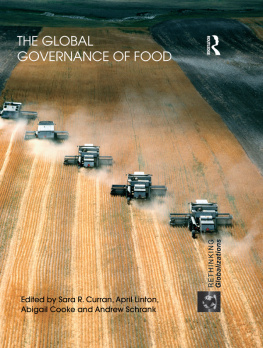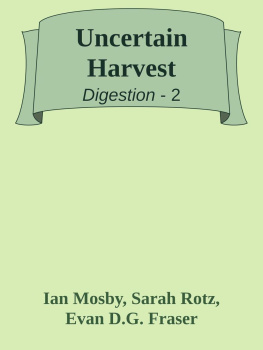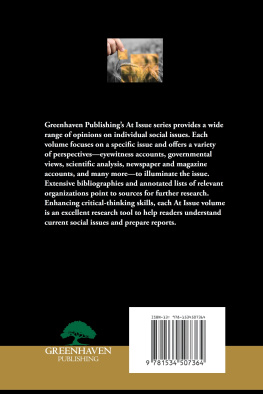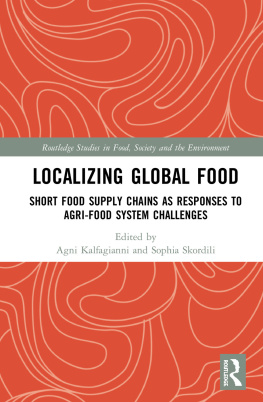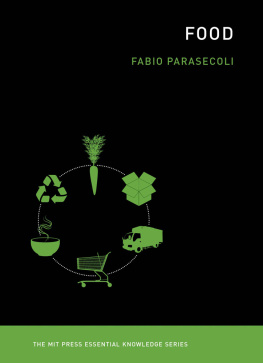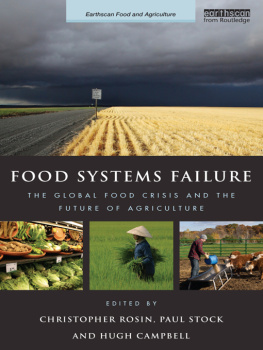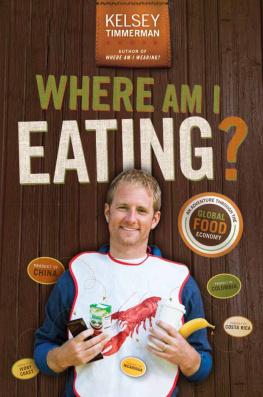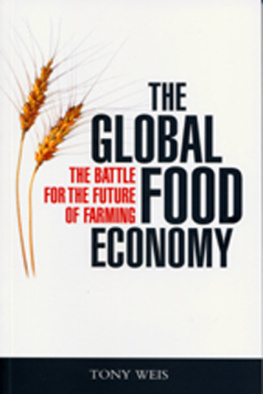The Global Governance of Food
Food provides a particularly exciting, tangible and grounded research site for understanding the mechanisms governing global transactions in the 21st century. While food is intimately and fundamentally related to ecological and human well-being, food products now travel far flung trade routes to reach us. International trade in food has tripled in value and quadrupled in volume since 1960 and tracing the production, movement, transformation, and consumption of food necessitates research that situates localities within global networks and facilitates our capacity to see the trees and the forest by zooming from the global to the local and back to the global. In short, our need for food is a constant; how we acquire food is a variable; and the production, commercialization, and consumption of food therefore offer an invaluable window onto the globalization of the world we inhabit. Global food trade is also distinguished by the variety of governance mechanisms shaping how, where and who produces and consumes it. Thus, food provides an ideal site for answering the fundamental questions of governance of central concern to globalization debates. This volume presents recent, well-developed and interdisciplinary scholarship about the variety of mechanisms governing global food systems and their impacts on human and environmental well-being.
This book was previously published as a special issue of Globalizations.
Sara R. Curran is an Associate Professor of International Studies & Public Affairs at the Henry M. Jackson School of International Studies and the Daniel J. Evans School of Public Affairs at the University of Washington.
April Linton is an Assistant Professor of Sociology at the University of California at San Diego.
Abigail Cooke is a graduate student in Geography at the University of California at Los Angeles.
Andrew Schrank is an Associate Professor of Sociology at the University of New Mexico.
Rethinking Globalizations
Edited by Barry Gills, University of Newcastle, UK
This series is designed to break new ground in the literature on globalization and its academic and popular understanding. Rather than perpetuating or simply reacting to the economic understanding of globalization, this series seeks to capture the term and broaden its meaning to encompass a wide range of issues and disciplines and convey a sense of alternative possibilities for the future.
1. Whither Globalization?
The Vortex of Knowledge and Globalization
James H. Mittelman
2. Globalization and Global History
Edited by Barry K. Gills and William R. Thompson
3. Rethinking Civilization
Communication and terror in the global village
Majid Tehranian
4. Globalization and Contestation
The New Great Counter-Movement
Ronaldo Munck
5. Global Activism
Ruth Reitan
6. Globalization, the City and Civil Society in Pacific Asia
Edited by Mike Douglass, K.C. Ho and Giok Ling Ooi
7. Challenging Euro-America's Politics of Identity
The Return of the Native
Jorge Luis Andrade Fernandes
8. The Global Politics of Globalization
Empire vs Cosmopolis
Edited by Barry K. Gills
9. The Globalization of Environmental Crisis
Edited by Jan Oosthoek and Barry K. Gills
10. Globalization as Evolutionary Process
Modeling Global Change
Edited by Geroge Modelski, Tessaleno Devezas and William R. Thompson
11. The Political Economy of Global Security
War, Future Crises and Changes in Global Governance
Heikki Patomki
12. Cultures of Globalization
Coherence, Hybridity, Contestation
Edited by Kevin Archer, M. Martin Bosman, M. Mark Amen and Ella Schmidt
13. Globalization and the Global Politics of Justice
Edited by Barry K. Gills
14. Global Economy Contested
Power and Conflict across the International Division of Labor
Edited by Marcus Taylor
15. Rethinking Insecurity, War and Violence
Beyond Savage Globalization?
Edited by Damian Grenfell and Paul James
16. Recognition and Redistribution
Beyond International Development
Edited by Heloise Weber and Mark T. Berger
17. The Social Economy
Working Alternatives in a Global Era
Edited by Hasmet M. Uluorta
18. The Global Governance of Food
Edited by Sara R. Curran, April Linton, Abigail Cooke and Andrew Schrank
First published 2009 by Routledge
2 Park Square, Milton Park, Abingdon, Oxon, OX14 4RN
Simultaneously published in the USA and Canada
by Routledge
270 Madison Avenue, New York, NY 10016
Routledge is an imprint of the Taylor & Francis Group, an informa business
Transferred to Digital Printing 2010
2009 Edited by Sara R. Curran, April Linton, Abigail Cooke and Andrew Schrank
Typeset in Times by Value Chain, India
All rights reserved. No part of this book may be reprinted or reproduced or utilised in any form or by any electronic, mechanical, or other means, now known or hereafter invented, including photocopying and recording, or in any information storage or retrieval system, without permission in writing from the publishers.
British Library Cataloguing in Publication Data
A catalogue record for this book is available from the British Library
ISBN10: 0-415-45162-0
ISBN13: 978-0-415-45162-8
Contents
Abigail M. Cooke, Sara R. Curran, April Linton and Andrew Schrank
Part 1: Global Complexities and Local Dynamics
Sara R. Curran
Sara R. Curran and Abigail M. Cooke
Judith A. Carney
Andrew Schrank
Sjur Kasa
Part 2: Responses to Global ComplexityBranding and Certification
Abigail M. Cooke
Susana Aparicio, Sutti Ortiz and Nidia Tadeo
Rebecca J. Goldburg
Michael T. Morrissey
Louis Lebel, Phimphakan Lebel, Po Garden, Dao Huy Giap, Supaporn Khrutmuang and Sachiko Nakayama
Part 3: Responses to Global ComplexityEthical Trade
April Linton
April Linton
Thomas V. Dietsch and Stacy M. Philpott
Christopher M. Bacon, V. Ernesto Mndez, Mara Eugenia Flores Gmez, Douglas Stuart and Sandro Ral Daz Flores
Jessa Lewis and David Runsten
William G. Moseley
Catherine S. Dolan
Abigail M. Cooke, Sara R. Curran, April Linton and Andrew Schrank

